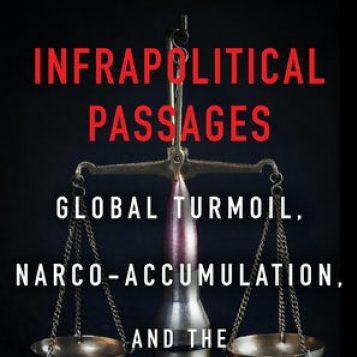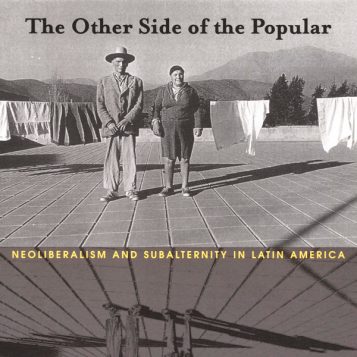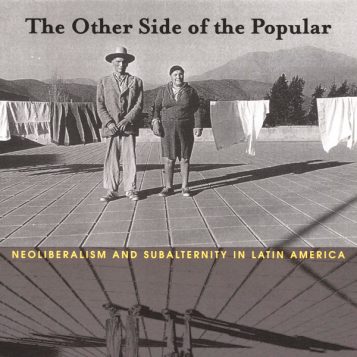Professor of Spanish
About
Professor Williams’ research emphasizes several interrelated areas: the modern and contemporary cultural and political traditions of Latin America and the U.S., with particular interest in the history of political thought and the genealogies of continental philosophy, Marxism, post-Marxism, and psychoanalysis. Since coming to the University of Michigan in 2002 he has directed more than twenty-five Ph.D. dissertations in the Departments of Romance Languages & Literatures and Comparative Literature, including aspects of modern and contemporary life and forms of representation in Mexico, Central America, the Southern Cone, Brazil, the Andes, Paraguay, Colombia and the United States from the 19th century to the present. Professor Williams is co-founder and co-editor of the University of Texas Press book series Border Hispanisms (https://utpress.utexas.edu/books/series/border-hispanisms) and General Editor of the on-line journal of critical theory and political thought, Política común (https://quod.lib.umich.edu/p/pc/).
Williams’ first book, The Other Side of the Popular: Neoliberalism and Subalternity in Latin America (Duke UP, 2002) stems from many of the critical debates of the 1990s including the effects on thinking and representation of the collapse of the Soviet Union, the end of the ‘Cold War’, and the violent determinations of an emergent ‘globalization’. This work came out of the experience of the Latin American Subaltern Studies Group in its 1996-1999 phase, and provides one of the first approaches to, and conceptualizations of, the question of posthegemony and the shifting role of cultural representation in relation to the crisis of modern sovereignty, the shift to a neoliberal state-form, and the violent globalizing processes of U.S., Central American, Andean and Southern Cone societies in the wake of the military regimes and international oil crisis of the early 1970s, and the Central American civil wars of the 1980s. The translation into Spanish of The Other Side of the Popular is scheduled for publication in 2021 with Ediciones Macul in Santiago de Chile.
Williams’ second book, The Mexican Exception: Sovereignty, Police and Democracy (Palgrave Macmillan, 2011) examines via literature, photography, and detailed historical and political analysis the modern relation between law, force and the democratic social order in Mexico from the Revolution of 1910 to the ratification of the North American Free Trade Agreement in 1994. After almost half a century of political philosophy announcing the advent of new paradigms of power based on the regularization of populations and economies, many of the policies of the Bush administration after 9/11 indicated that the traditional rights of the sovereign to kill or suspend guarantees while remaining free from legal obligation were witnessing a powerful resurgence. In the 2000s the liberal democracies of the West were once again embracing force as a fundamental procedure internal to the defense of good order, over and above the management and administration of the population by the liberal optimization of collective well-being and prosperity. Modern and contemporary Mexico has never been a stranger to the difficulty in measuring interactions between, on one hand, the vast anatomy of social powers that regularize everyday life and, on the other, the state’s sovereign decision to define the political arena by imposing and acting on a distinction between the characteristics of a friend and those of an enemy. This book proposes to highlight the history of that difficulty via the subterranean narratives of Zapatismo in twentieth century Mexico.
Williams’ third book, Infrapolitical Passages: Global Turmoil, Narco-Accumulation, and the Post-Sovereign State (Fordham UP, 2020) revisits the question of posthegemony and makes the case for a non-humanist thinking of existence. This work proposes infrapolitics as the extension of intellectual responsibility in the face of a tumultuous world of war and of technological value extraction on a planetary scale. It offers a theory of globalization as a gigantic, directionless crisis in humanity’s symbolic organization, together with a theory of global economic warfare as the very positing of directionlessness, and, at the same time, of facticity. Infrapolitics takes a step back from the biopolitical, understanding the latter as domination presenting itself as the production of specific forms of subjectivity in the face of the commodity. The subsequent obscuring of the question of being indicates the need to circumvent the instrumentalization of life, which only every entails subordination to the metaphysics of subjectivity, representation, and politics. Infrapolitical Passages works to uncover that which is unavailable in subjectivity and representation, opening a way for facticity in the age of globalization in order to make room for the infrapolitical question for existence, understood as being-towards-death.
Selected Recent Publications:
“In the Wake of Leviathan: From Biopolitics to Posthegemony”. Interregnum: Between Biopolitics and Posthegemony. Ed. Giacomo Marramao. Rome, Mimesis International Edizioni Srl, 2020: 35-48.
“Life Death Lagging Behind/La vida la muerte quedándose atrás”. #lacanemancipa: Frente al Uno del capitalismo el no-Todo de la emancipación. Archivo Mensual: Abril 2020: https://lacaneman.hypotheses.org/date/2020/04
Decontainment, Stasis and Narco-Accumulation”. Global South. Special issue on “Men with Guns: Cultures of Paramilitarism in the Modern Americas”. Eds. Joshua Lund & Anne Garland Mahler. (12: 2) 2019: 90-108.
“Why Bother with the Infrapolitical? A Question of (Just) Existence”. Soft Power: Revista euro-americana de teoría e historia de la política y del derecho. Vol. 5 (2) (July-December) 2018: 221-31.
“¿Qué es el populismo? Nosotros, ¿verdad?”. In ¿El populismo por venir? A partir de un debate en Princeton. Eds. Angel Loureiro and Rachel Price. Madrid: Escolar y Mayo, 2018: 169-185.
Recent Graduate Courses Taught
Anxiety and Experience (2020)
On Decontainment (2017)
Recent Undergraduate Courses Taught
The Limits of the Human
Narco-Accumulation





